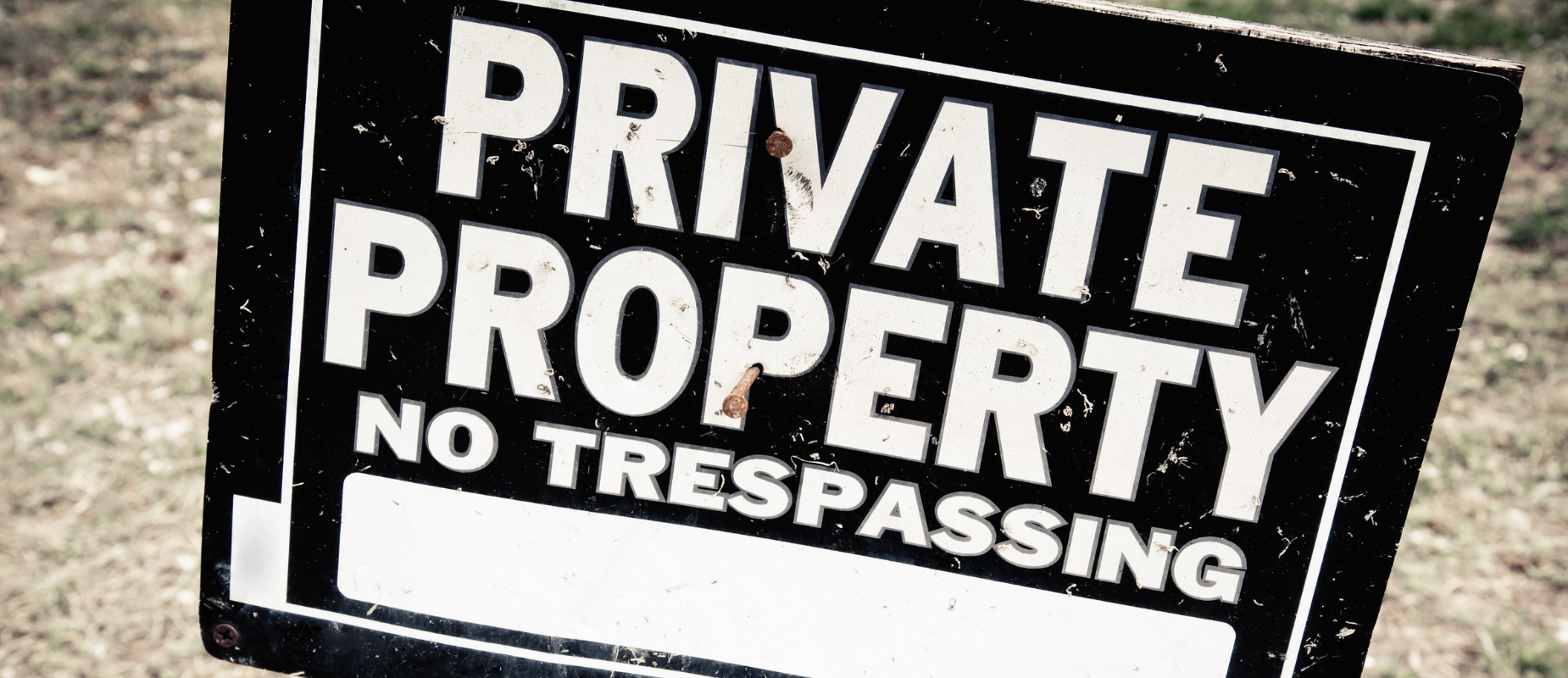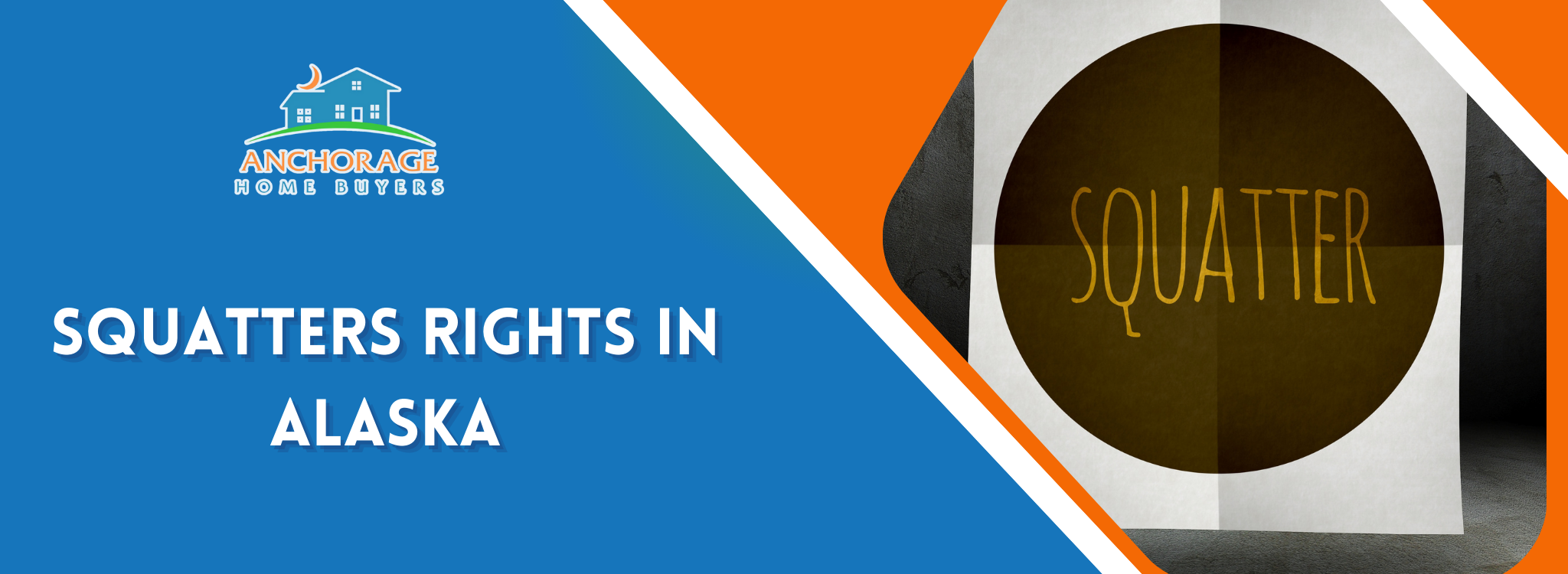
Understanding Squatters’ Rights In Alaska
Squatters’ rights in Alaska can be a difficult and perplexing issue for both homeowners and landlords. Understanding your property rights is crucial for protecting it and avoiding legal disputes.
Alaska’s adverse possession laws govern squatters’ rights, allowing them to claim ownership of land after occupying it for a certain amount of time. This means that if a person continuously occupies and uses someone else’s land for at least ten years without the owner’s permission, they may be able to acquire legal ownership of the property.
However, certain conditions must be met for this to occur, such as open and obvious use of the land and payment of property taxes. Homeowners and landlords should understand and follow these laws, To protect their property from squatters.
TABLE OF CONTENTS
- Understanding Squatters’ Rights In Alaska
- Qualifying As A Squatter In Alaska: Requirements And Criteria
- The Process Of Claiming Ownership As A Squatter In Alaska
- Taking Action: Removing Squatters From Your Alaska Property
- Strategies For Preventing Squatters In Alaska
- Comparing Squatters’ Rights In Different States
- Overcoming Challenges When Dealing With Squatters
- When Do Squatters’ Rights Cross The Line?
- Exploring The Ethics Of Squatters’ Rights
- Key Takeaways On Understanding And Dealing With Squatters In Alaska
- Frequently Asked Questions About Squatters’ Rights In Alaska
- What You Need To Know About Holdover Tenants In Alaska
- Navigating Adverse Possession Laws In Alaska
- Can Alaskans Claim Adverse Possession With A Color Of Title?
- How To Evict A Squatter In Alaska?
- What Is The Shortest Time For Squatters Rights?
- Does Alaska Have Adverse Possession?
- Are Squatters Rights Ok?
Qualifying As A Squatter In Alaska: Requirements And Criteria
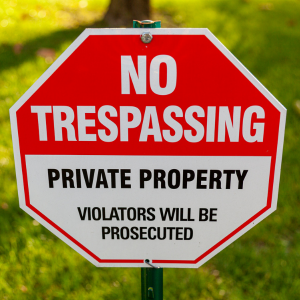
Squatter rights in Alaska can be difficult for homeowners and landlords to understand. However, it is critical to understand the qualifications and criteria for becoming a squatter in Alaska.
To be considered a squatter, a person must have lived on someone else’s property without their permission for at least ten years. This includes openly and notoriously living on the property without permission, causing others to be aware of the situation.
In addition, the individual must have paid all property taxes and assessments during this period. To claim squatters’ rights in Alaska, meet the following requirements.
The Process Of Claiming Ownership As A Squatter In Alaska
Squatters’ rights in Alaska can be difficult for homeowners and landlords. To claim ownership of a property, squatters must take specific steps.
The first step is to establish open and notorious possession of the property, which means living there openly without concealment. This can be demonstrated using evidence such as utility bills, mail delivery, or witness testimony.
You must demonstrate that you have occupied the property for at least ten years without interruption. This means that even if the original owner attempts to remove you from the property, you must stay and continue to assert your right to possession.
Once these requirements are met, you can file an adverse possession claim in court and present evidence to back up your ownership claim. Seek legal advice before pursuing a squatter’s rights claim in Alaska, as the process is complex.
Taking Action: Removing Squatters From Your Alaska Property

Both homeowners and landlords in Alaska may be concerned about squatters’ rights. These individuals may take advantage of legal loopholes to occupy another person’s property without permission.
As a property owner, you must understand how to protect your rights and take action as needed. The first step is to document the squatter’s presence and collect evidence of their occupation on your property.
This could include photos, witness statements, or any other relevant information. Consult a real estate attorney to determine the best approach to removing the squatter from your property.
Depending on the circumstances, this may entail filing for eviction or taking legal action through the courts. Protecting your property rights as a homeowner or landlord in Alaska requires quick and assertive action.
Strategies For Preventing Squatters In Alaska
For landlords as well as homeowners in Alaska, squatters’ rights can be a big issue. These rights—also known as adverse possession—let someone legally claim ownership of a property if they have been living on it without the owner’s permission for a designated period of time.
Homeowners and renters can use several tactics to stop this from occurring. One good approach is to keep an eye on the property often and take quick care of any indications of illegal occupancy.
Maintaining clear limits and posting no-trespassing signs also helps discourage possible squatters. Having a written lease agreement covering all occupants also helps create legal tenancy and guard against claims for adverse possession.
Knowledge of local laws and rules on squatters’ rights in Alaska helps guarantee appropriate practices in case of an eviction. Homeowners and landlords can drastically lower the likelihood of squatters on their premises by acting early and following these guidelines.
Comparing Squatters’ Rights In Different States
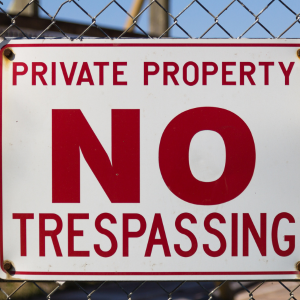
Squatter’s rights, also known as adverse possession laws, differ from state to state. Alaska has stricter requirements for claiming squatters’ rights than other states.
To legally own a property in Alaska, a squatter must occupy it for at least ten years and pay all property taxes. Furthermore, the original owner must not have taken any legal action against the squatter during the ten years.
However, in some other states, such as California, the time limit is only five years, and no property taxes are due. Alaskan homeowners and landlords must first understand these differences to protect their property from potential squatters.
Overcoming Challenges When Dealing With Squatters
Dealing with squatters who occupy a property without the owner’s legal right or permission can be a frightening and difficult chore for Alaskan landlords and homeowners.
Squatters often take advantage of legal gaps in states, making it challenging for property owners to remove them. Overcoming these difficulties, though, depends on knowing squatters’ rights in Alaska.
In this thorough guide, we will discuss the legal procedure for evicting squatters and offer advice on how to prevent them from occupying your property. Being informed and proactive will help you defend your rights as a landlord or homeowner and handle any scenario, including squatters.
When Do Squatters’ Rights Cross The Line?
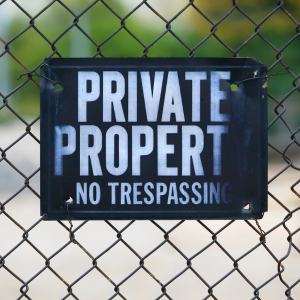
Squatters’ rights are complicated and controversial for Alaskan homeowners and landlords. While these laws protect people who have occupied property without permission for a long time, they can also cause problems for property owners.
Both parties must know when squatters’ rights become illegal. This usually happens when the occupant hasn’t lived on the property long enough or claimed ownership.
If squatters damage property or commit crimes, their rights may be forfeited. Property owners and landlords must be aware of these laws and take legal action to safeguard their property rights.
Exploring The Ethics Of Squatters’ Rights
Squatters’ rights have long been a source of debate and controversy in Alaska and across the country. While some see it as a necessary safeguard for those struggling to find housing, others see it as a violation of property rights and unethical behavior.
Understanding squatters’ rights and their ethical implications is crucial for Alaskan homeowners and landlords. This comprehensive guide is intended to thoroughly understand the legalities and moral considerations involved in dealing with squatters on your property.
By researching the ethics of squatters’ rights, you will be better prepared to deal with any potential problems and make informed decisions about your property.
Key Takeaways On Understanding And Dealing With Squatters In Alaska
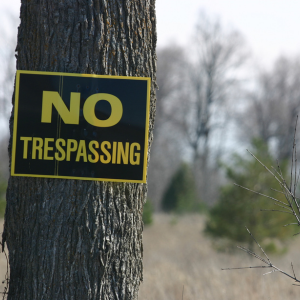
In Alaska, homeowners and landlords must be aware of squatters’ rights. Squatting, which is occupying someone else’s property without their permission, can result in legal issues and financial losses.
Squatters in Alaska have specific rights, which are determined by how long they have been occupying the property and what they intend to do with it. Property owners should be familiar with these laws so they can safeguard their investments, and property managers should be prepared to deal with squatters effectively.
The most important thing to remember is to be aware of what is needed for adverse possession, keep an eye on properties, and ask for a lawyer’s opinion when dealing with squatters. If you want to prevent squatting issues from becoming drawn out in court, it’s crucial to keep the lines of communication open with tenants and deal with any violations quickly.
In Alaska, homeowners and landlords can deal with squatters effectively by understanding the laws and taking the necessary precautions.
Frequently Asked Questions About Squatters’ Rights In Alaska
Alaskan squatters’ rights are complicated for homeowners and landlords. To address some common concerns, we have compiled a list of FAQs on Alaska squatters’ rights.
Squatters’ legal protection in the state is a common question. Squatters may be protected by the law and even claim ownership of the property they occupy.
Another common question is how long a squatter must occupy a property before claiming ownership. Squatters’ claims strengthen the longer they occupy a property without challenge from the rightful owner, though there is no set time period.
Many wonder if they can remove a squatter from their property without legal action. If the squatter had legal rights to the property, this could lead to criminal charges.
Squatters’ rights in Alaska require careful consideration and knowledge of state laws and regulations.
What You Need To Know About Holdover Tenants In Alaska
Understanding squatter’s rights is crucial for Alaskan homeowners and landlords. Holdover tenants also cause confusion and legal issues in tenant-landlord relationships.
Tenants who occupy a property without permission or after their lease expires. Alaskan holdover tenants have legal protections that make it difficult for landlords to evict them.
Each party must understand how these laws affect their rights and responsibilities in such situations. Failure to do so could lead to expensive lawsuits and financial losses.
To avoid legal issues, Alaskan homeowners and landlords must learn about holdover tenants and their rights.
Navigating Adverse Possession Laws In Alaska
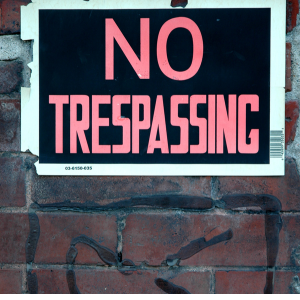
Navigating Alaska’s adverse possession laws can be a complex and confusing process for both homeowners and landlords. Adverse possession, also known as squatters’ rights, is a legal concept allowing individuals to gain ownership of land by occupying it for a specified period without the owner’s permission.
In Alaska, adverse possession lasts ten years for residential properties and seven years for commercial properties. However, several requirements must be met before adverse possession, including open and notorious use, continuous use, and hostile intent, must be granted.
It is critical for homeowners and landlords to understand these requirements and seek legal advice when dealing with potential adverse possession claims. Failure to do so may result in losing ownership of their property.
Can Alaskans Claim Adverse Possession With A Color Of Title?
Squatters’ rights, also known as adverse possession, can be claimed in Alaska through a color of title. This means that if a person has been using and occupying someone else’s land for a set period of time, usually 10-20 years, they may have legal grounds to claim ownership.
However, in order for this claim to be valid, the individual must have some kind of document or evidence to back up their belief that they have rightful ownership. This could be a deed or other type of official document.
It is critical for both homeowners and landlords to understand how adverse possession works in Alaska and what precautions they can take to protect their property from potential claims.
How To Evict A Squatter In Alaska?
If you own property or are a landlord in Alaska, you should know the laws protecting squatters. You can legally remove a squatter from your property by following certain procedures, though the specifics may differ from state to state.
The first and most important step is to give the squatter written notice that they are trespassing and do not have the legal right to occupy the property. If the squatter continues to refuse to vacate after this initial notice, you have the option to initiate the eviction process through the court system.
To back up your claim, you should collect proof of the squatter’s presence on your property, like witness accounts or photos. After a court has issued an eviction order, law enforcement can be involved to physically remove the squatter from your property.
Evicting a squatter and reclaiming your property in Alaska is possible if you follow these steps and know your rights as a homeowner or landlord in the state.
What Is The Shortest Time For Squatters Rights?
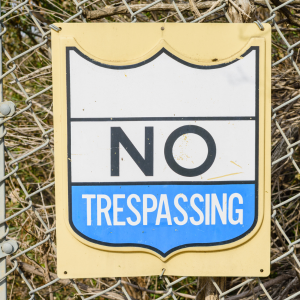
Squatters’ rights, also known as adverse possession, can be a complex and frequently misunderstood topic for Alaskan homeowners and landlords. Understanding the complexities of this legal concept is critical, particularly when it comes to the shortest time frame for squatters to gain rights to their property.
In Alaska, a squatter must wait at least seven years to potentially claim ownership through adverse possession. If someone occupies your property without your permission for at least 7 years, they may have legal rights to it.
However, certain conditions and requirements must be met before someone can successfully claim squatters’ rights in Alaska, so property owners should educate themselves on this topic.
Does Alaska Have Adverse Possession?
Like many other states, Alaska has laws that govern adverse possession, also known as squatter’s rights. This legal principle allows people who have occupied a property for an extended period of time without permission or payment to claim ownership of the land.
However, in Alaska, certain requirements must be met before adverse possession can be applied. Requirements for land ownership include seven years of continuous use, open occupation, and a good faith belief in ownership.
Homeowners and landlords must understand these laws to protect their property rights and avoid potential legal disputes with squatters. By becoming familiar with the state’s adverse possession laws, individuals can effectively navigate potential challenges to squatters’ rights in Alaska.
Are Squatters Rights Ok?
Squatters’ rights, also known as adverse possession, have long been a source of contention for Alaskan homeowners and landlords alike. Many people wonder if it is morally acceptable for someone to gain ownership of a property simply by living on it without permission from the owner.
Understanding Alaska’s squatters’ rights laws and regulations is crucial for both parties involved. Homeowners must be aware of their rights and take the necessary precautions to protect their property, whereas landlords must understand the legal process if they ever encounter a squatter situation.
This comprehensive guide is intended to provide homeowners and landlords with the information they need to navigate potential squatter issues in Alaska.
This information applies to Alaska and its cities, including Meadow Lakes, Big Lake, and Eagle River. For assistance or questions, please call us at (907) 331-4472. You can also visit our website at Anchorage Home Buyers for more details.
More Resources For Sellers In Alaska
| SQUATTERS CLAIM | SQUATTERS’ RIGHTS | LANDLORD AND TENANT | EVICTED | NOTICE TO QUIT | EVICTION NOTICES |
| NOTICES TO QUIT | RENTAL | RENTAL PROPERTY | POLICE | LEGAL PROCEEDINGS | LAWSUIT |
| LEGAL SERVICES | LAWYER | TRESPASSERS | SUMMONS | COURT SUMMONS | FEE |
| COMPLAINT | STATUTES | PROPERTY MANAGEMENT | PROPERTY MANAGEMENT SOFTWARE | JUDGMENT | PROCESS SERVER |
| MANAGEMENT | PEACE OFFICER | PROPERTY LAWS | TEXAS | SMALL CLAIMS | SMALL CLAIMS COURT |
| SMALL CLAIMS COURT | RENTAL AGREEMENT | QUIET TITLE | PREMISES | JURISDICTION | JUDGE |
| DAMAGES | ACTUAL DAMAGES | WRIT OF ASSISTANCE | STATE TROOPERS | PRESCRIPTIVE EASEMENT | |
| COURT ORDER | CIVIL PROCEDURES | THE UNITED STATES | SECURITY | REAL PROPERTY | LANDOWNERS |
| ALASKA DISTRICT COURT | ALASKA SUPERIOR COURT | FORCIBLE ENTRY | DETAINER | CRIMINAL OFFENSE | ILLEGAL ACTIVITY |
| CONSENT | ALASKAS ADVERSE POSSESSION | OF ADVERSE POSSESSION | THE PROPERTY IS | AND REAL ESTATE | FOR ADVERSE POSSESSION IN |

